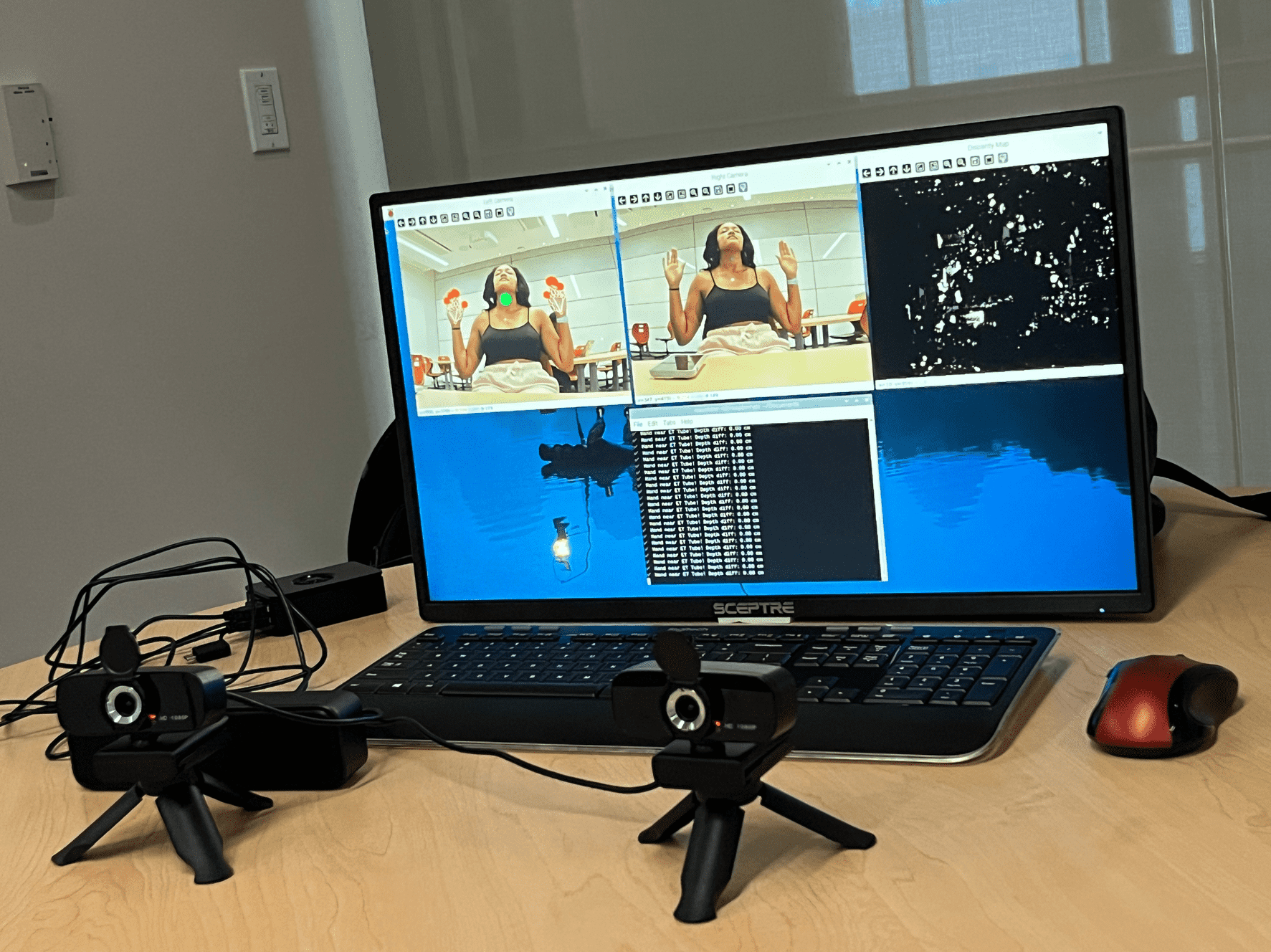Project Description:
In hospital settings, patients often depend on multiple medical devices to aid in their treatment and recovery. A persistent challenge faced by healthcare providers is the unintentional removal of critical medical tubes, most notably endotracheal tubes, by agitated or disoriented patients. Such self-extubation events can result in serious complications and are typically addressed through physical or pharmacological restraints. However, these interventions raise ethical concerns, including increased patient distress, higher risk of complications, and reduced overall comfort. There is a need for a solution that enables early detection of risky patient behavior without compromising patient comfort. To address this, we propose a non-intrusive, real-time video-based monitoring system designed to enhance patient safety by accurately detecting dangerous movements and issuing immediate alerts to healthcare staff. Our prototype consists of two USB webcams connected to a Raspberry Pi 5, running Python in combination with Mediapipe and OpenCV for real-time image analysis and object tracking. Colored markers are strategically placed on medical tubing to monitor their spatial relationship. If the distance between these markers falls below a threshold, suggesting a risk of tube dislodgement, the system activates an alarm to prompt intervention. The system carries positive ethical implications for patients, healthcare providers, hospitals, and AI technology companies. By reducing self-extubation incidents, it can lead to better patient outcomes and lower costs related to prolonged ICU stays. However, its use of surveillance will require careful consideration of data privacy and security standards, including strict adherence to HIPAA regulations.
